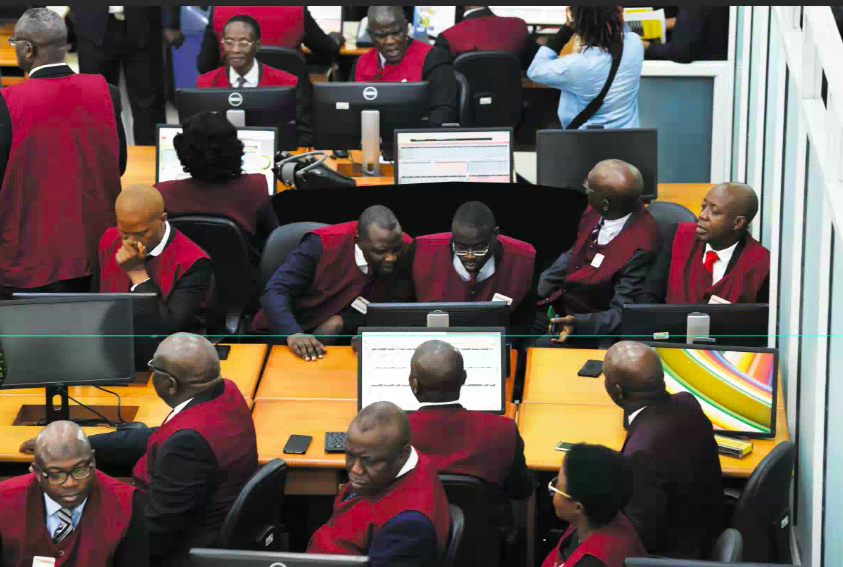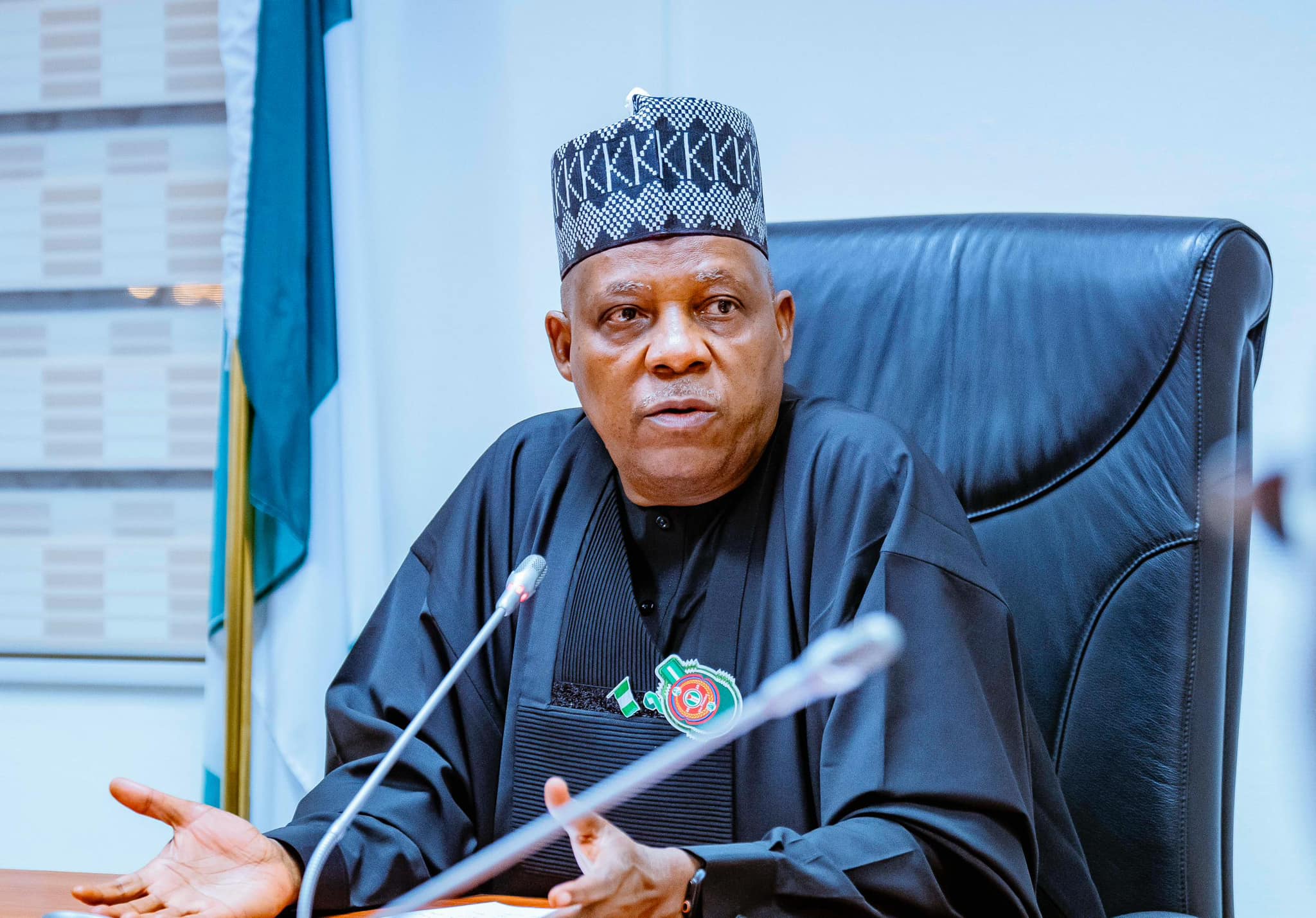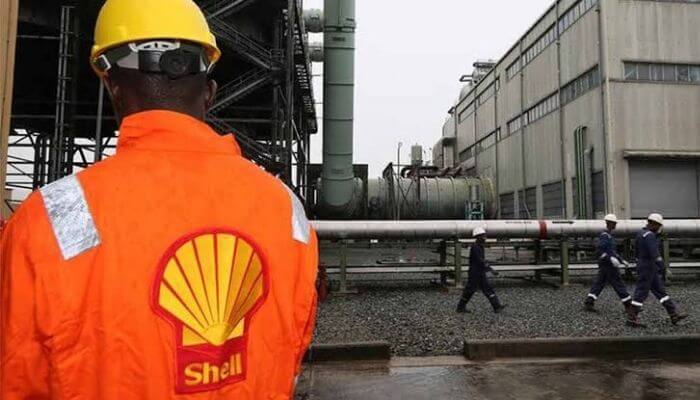FG Hails Shell’s Fresh $2bn Gas Investment, Upstream FIDs Exceed $8bn
FG Hails Shell’s Fresh $2bn Gas Investment, Upstream FIDs Exceed $8bn
•Lokpobiri: It’s direct outcome of Tinubu’s bold reforms
•NUPRC partners W’Bank to boost Nigeria’s upstream decarbonisation agenda
Deji Elumoye, Emmanuel Addeh in Abuja and Peter Uzoho in Lagos
In a landmark deal coming after 40 years of discovery of the HI gas field in 1985, Shell Nigeria Exploration and Production Company Limited (SNEPCo), a subsidiary of Shell Plc, together with Sunlink Energies and Resources Limited, yesterday announced the Final Investment Decision (FID) on the asset, located offshore Nigeria.
Shell disclosed this yesterday in a statement issued in London, saying that when completed, the project will supply 350 million standard cubic feet of gas per day (mmscf/d), approximately 60,000 barrels of oil equivalent per day at peak production, to Nigeria Liquefied Natural Gas (NLNG) where Shell has 26.5 per cent interest.
The development elicited delightful reactions from President Bola Tinubu, the Minister of State for Petroleum, Senator Heineken Lokpobiri as well as the Special Adviser on Energy to the President, Olu Verheijen.
The oil major stated that the development of the asset would boost feedstock supply to NLNG which produces and exports liquified natural gas (LNG) to global markets.
Shell also said that production was expected to begin on the HI field before the end of this decade -2030.
“Following recent investment decisions related to the Bonga deep-water development, today’s (yesterday’s) announcement demonstrates our continued commitment to Nigeria’s energy sector, with a focus on Deepwater and Integrated Gas,” Shell’s Upstream President, Peter Costello, said in the statement.
“This Upstream project will help Shell grow our leading Integrated Gas portfolio, while supporting Nigeria’s plans to become a more significant player in the global LNG market”, he added.
The HI project is one of the major upstream projects long anticipated by both the operators and the federal government to boost Nigeria’s gas production and help to power the nation’s economy through increased domestic gas supply and utilisation.
According to the statement, the increase in feedstock to NLNG, via the Train 7 project that aims to expand the Bonny Island terminal’s production capacity, is in line with Shell’s plans to grow its global LNG volumes by an average of 4-5 per cent per year until 2030.
The oil major further said the development of the HI field would also bolster NLNG’s contribution to Nigeria’s national economic development goals, including jobs in construction and operations.
Shell said the HI field was discovered in 1985 and lies in 100m of water depth around 50km from the shore. It stated that the current estimated recoverable resource volumes of the HI project were approximately 285 million barrels of oil equivalent (mmboe).
Shell explained that the HI project was part of a joint venture between Sunlink Energies and Resources Limited (60 per cent) and SNEPCo (40 per cent). It said the production associated with this project will be reported through Shell’s Upstream segment.
Besides, the company’s stated that the project consists of a wellhead platform with four wells, to be installed at the HI field location, a pipeline to transport the multiphase gas to onshore at Bonny, and a gas processing plant at Bonny, from where the processed gas will be transported to NLNG and the condensate to the Bonny Oil and Gas Export Terminal.
The statement further highlighted that the estimated peak production and current estimated recoverable resources presented above were 100 per cent total gross figures.
“Current estimated recoverable resource volumes are a P50 estimate under the Society of Petroleum Engineers’ Petroleum Resources Classification System. P50 means there is a 50 per cent probability of the estimate being lower and a 50 per cent probability of being higher.
“This project contributes to Shell’s Capital Market Day 2025 commitment to deliver upstream and integrated gas projects coming on stream between 2025 to 2030 with a total peak production of more than 1 million barrels of oil equivalent per day (boe/d). This also supports Shell’s intent to grow top line production across our combined Upstream and Integrated Gas business by 1 per cent per year to 2030.
“LNG plays a key role in the energy transition, producing less greenhouse gas emissions than coal when used to generate electricity, and less emissions than petrol or diesel when used for transport fuel,” the oil giant stated.
Shell recalled that it took a final investment decision on the Bonga North project in December 2024 and recently increased its stake in the Bonga field, consistent with the company’s intention to be a continued disciplined investor in Nigeria’s energy sector through its Deep Water and Integrated Gas businesses.
In a reaction, President BolaTinubu applauded the news of Shell’s $2 billion FID). According to a statement issued by presidential spokesperson, Bayo Onanuga, the announcement brings total significant upstream investment commitments through Final Investment Decisions (FIDs) in Nigeria’s oil and gas sector to over $8 billion since Tinubu assumed office in 2023.
According to the statement, this underscores the success of the administration’s reform agenda and the renewed confidence of global investors. Tinubu reiterated his administration’s commitment to creating an enabling environment for Nigeria’s domestic and foreign investors.
“This major FID announcement by Shell, their second in one year, is a clear validation of our wide-ranging reform efforts and a signal to the world that Nigeria is fully open for business and investment”, the President said.
This investment decision, he said, is Nigeria’s third major oil and gas FID in the last 18 months, following the Ubeta Non-Associated Gas project and the Bonga North deepwater project.
According to the presidential aide, it marks yet another milestone in Nigeria’s journey to unlock its abundant gas resources for domestic and export use, as the Ubeta and HI gas projects can supply up to 15 per cent of the NLNG’s total feedgas requirements, covering Trains 1 to 7.
Since 2024, Tinubu, the statement said, has issued targeted directives as part of the industry reform, introducing unprecedented fiscal incentives, regulatory clarity, operating process simplification, cutting contracting costs, and reducing approval cycle times, the statement said.
The three landmark FIDs—the HI and Ubeta gas projects, and Bonga North deepwater, it said, represent blueprint projects selected and unlocked by the federal government to drive the implementation of the presidential directives.
Special Adviser to Tinubu on Energy, Olu Arowolo Verheijen, said: “With the Ubeta FID and now the HI FID, we have secured the gas supply needed to make NLNG Train 7 not just possible, but transformative.
Also, Lokpobiri said the government was pleased with the announcement by Shell Nigeria of an FID worth $2 billion for a new offshore project in Nigeria’s HI Field, located in Oil Mining Lease (OML) 144, approximately 50 kilometers offshore.
The significant investment, communicated to the minister by the Country Chair of Shell Nigeria, Mr. Marno de Jong, a statement by Lokpobiri’s spokesperson, Nneamaka Okafor, said, represents another major milestone in the nation’s ongoing efforts to strengthen its energy sector and boost production.
“The FID was taken out between Shell Nigeria Exploration and Production Company (SNEPCo) and Sunlink Energies Resources Limited, marking a strong demonstration of confidence in Nigeria’s oil and gas investment climate and the government’s commitment to driving sustainable energy growth,” the minister said.
Lokpobiri stated that this development was a direct outcome of the bold reforms and transformative policies implemented by the federal government, which continue to enhance investor confidence and attract substantial capital inflows into Nigeria’s oil and gas industry.
“This $2 billion investment reaffirms Nigeria’s position as a preferred destination for energy investment and highlights the value of collaboration between government and industry,” the Minister noted. We anticipate that more Final Investment Decisions from other investors will follow in the coming months as confidence in our sector continues to grow,” Lokpobiri stated.
He maintained that the government remains committed to fostering an enabling environment for investment and ensuring that the benefits of such strategic partnerships translate into increased national prosperity, job creation, and sustainable energy development.
Still in the oil sector, the Nigerian National Petroleum Company Limited (NNPC) has emphasised that forging strategic partnerships remains vital to unlocking value, achieving sustainability, and advancing commercialization within the nation’s downstream petroleum sector.
Group Chief Executive, Bayo Ojulari, who was represented by the Executive Vice President, Downstream, Mr. Mumuni Dagazau, disclosed this in an address during the 2025 Inaugural Annual Downstream Petroleum Week, organised by the House of Representatives Committee on Petroleum Resources (Downstream), yesterday.
Describing Nigeria’s downstream landscape as one shaped by transition, opportunity, and strategic reform, Ojulari stressed the importance of collaboration as a yardstick to a sustainable energy future, a statement by the NNPC spokesman, Andy Odeh said.
He noted that Africa’s energy demand is expected to grow significantly in the coming years, with Nigeria at the forefront. This, he said, calls for coordinated efforts and collective responsibility to harness emerging opportunities and ensure inclusive, long-term sectoral growth.
On the domestic front, he reaffirmed NNPC’s commitment to ensuring consistent fuel availability, competitive pricing, and uncompromising quality assurance across all its retail network nationwide.
“The opportunity to create a sustainable economy for today and the future is hinged on supply partnership, infrastructure co-investments, security partnerships, host community cooperation and operational alliance. Everyone needs to get involved in the activities that will ultimately create a sustainably promising future for Nigeria,” he said.
Ojulari also commended the National Assembly and the House of Representatives Committee on Petroleum Resources (Downstream) for convening the strategic forum, assuring that as a commercial and national energy entity, NNPC Ltd., remains committed to fostering stakeholder engagement and advancing collaborative models for sector-wide growth.
The event, held at the National Assembly Complex, with the theme: “Celebrating Our Successes, Confronting Our Challenges, and Finding Solutions for the Petroleum Downstream Sector,” had in attendance downstream sector players and legislators.
Meanwhile, the Nigerian Upstream Petroleum Regulatory Commission (NUPRC), in keeping with its mandate to champion the decarbonisation of Nigeria’s upstream oil & gas, has collaborated with the World Bank Group and other multilateral institutions to deepen the capacity of industry operators in methane abatement and emissions management.
This comes as the NUPRC and the World Bank have recommitted to boosting Nigeria’s decarbonisation drive.
The pledge was made at a three-day Measurement, Monitoring, Reporting, and Verification (MMRV) Capacity Building Programme organised by the NUPRC in partnership with the World Bank Group in Abuja.
The workshop, which drew over 70 participants, featured a broad cross-section of the upstream petroleum industry, including International Oil Companies, the NNPC, indigenous operators, and independents.
The programme was designed to strengthen Nigeria’s technical and regulatory capacity for effective emissions monitoring and management within the upstream oil and gas sector.
Speaking on behalf of the Commission Chief Executive, Gbenga Komolafe, the Executive Commissioner, Development and Production, Enorense Amadasu, stated that methane emissions account for a significant share of Nigeria’s upstream greenhouse gas footprint, mainly from flaring, venting, and fugitive sources.
While recapping the three-day session, Joseph Ogunsola, the NUPRC’s Director, Energy Sustainability & Carbon Management, re-emphasised the Commission’s unwavering commitment to aligning Nigeria’s upstream petroleum operations with international best practices in emissions management and carbon monetisation.






